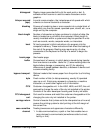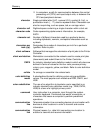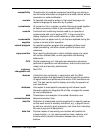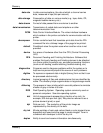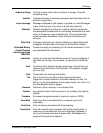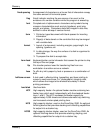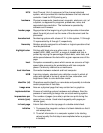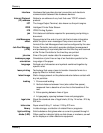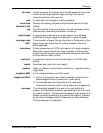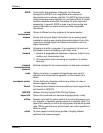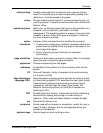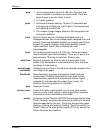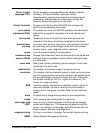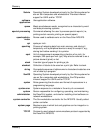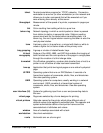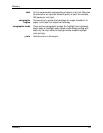
Glossary
Installation Planning Guide 13
line feed Control character that (unless set to be interpreted as a line end)
causes the printing system to begin printing in the current
character position of the next line.
load To enter data into storage or working registers.
Local Area
Network (LAN)
Network connecting computer and peripheral devices through
cables.
log File that contains a record of events, such as messages, errors,
jobs and their accounting information, and so on.
logical page A logical page is defined by an origin location, thus allowing
more than one logical page to be placed on a physical page.
long-edge feed
(LEF)
The movement of paper through the printer in the direction of the
paper length (the longer side of a sheet of paper).
See also
short-edge feed.
mainframe Central processing unit (CPU) and memory of a large computer.
More often used to denote any large computer of the type that
might be used to control a group of smaller computers, terminals,
or other devices. Refer to host.
markform A parameter name for an end-of-job marker in the IPDS data
stream.
media Describes size, type, color, and weight.
medium Object or material on which data is stored (e.g., magnetic tape or
floppy disk).
megabyte (MB) A unit of approximately one million bytes.
megahertz (MHz) 1. Unit of cycling speed (one million cycles per second) for an
electromagnetic wave (in particular, a radio wave).
2. The sending and receiving stations of a radio wave
transmission must be tuned in to the same unit of megahertz.
message The information passed to the user or to a task within the
system. The information is usually associated with an error, fault,
or system condition. The standard message format consists of a
header (containing identifying and control information), followed
by the actual message content, followed by a trailer (indicating
that the message is completed).



